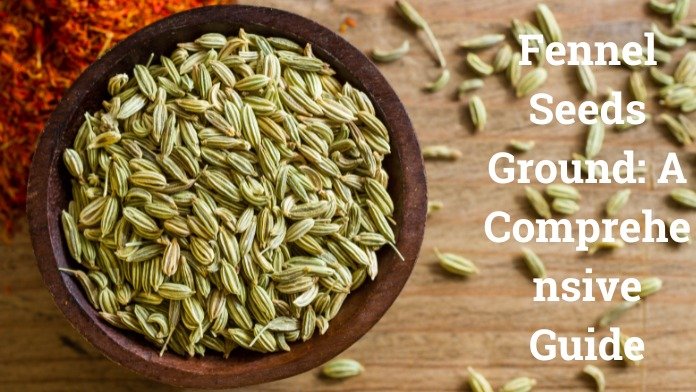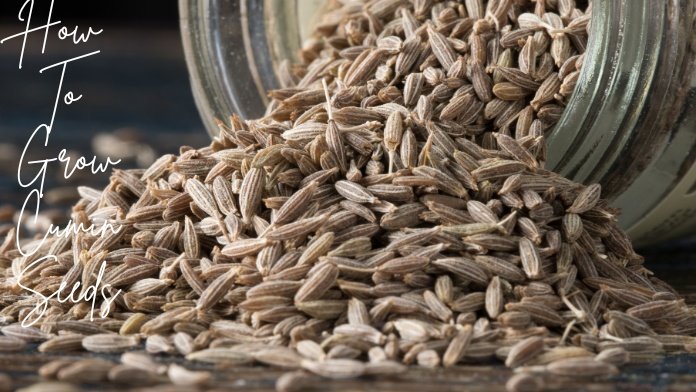Fennel seeds are tiny greenish-brown seeds from the fennel plant, scientifically known as Foeniculum vulgare. They have a sweet anise-like aroma and are used worldwide in various culinary and medicinal applications.
But what makes these little seeds so unique, especially when ground? Let’s dive into the fascinating world of fennel seeds ground.
What are Fennel Seeds?
Fennel seeds are the dried seeds of the fennel plant, a carrot family member. They are collected from the plant’s flowers and are known for their distinct sweet and slightly spicy taste.
Ground fennel seeds are seeds that have been finely ground into a powder.
Importance of Fennel Seeds
Fennel seeds have a rich history that dates back to ancient times. The Greeks and Romans admired them for their culinary and medicinal properties.
In medieval Europe, fennel was believed to ward off evil spirits, and in India, fennel seeds were traditionally used as a digestive aid after meals.
Nutritional Profile of Fennel Seeds
The nutritional benefits of fennel seeds can help you appreciate their value in a healthy diet.
Vitamins and minerals
Fennel seeds are packed with essential vitamins and minerals.
They are especially rich in:
Vitamin C: An antioxidant that stimulates the immune system.
Calcium: Important for bone health.
Iron: Essential for blood production.
Magnesium: Important for muscle and nerve function.
Calorie content: Fennel seeds are relatively low in calories. A tablespoon of these seeds contains about 20 calories, making them a nutrient-dense addition to your diet.
Benefits of Fennel Seeds
Ground fennel seeds provide numerous health benefits that can improve your overall well-being.
Digestive Health
One of the well-known benefits of fennel seeds is their positive effect on digestion. Fennel seeds help relieve bloating, gas, and indigestion.
They smooth the digestive process, promoting the production of digestive enzymes.
Antioxidant Properties
Fennel seeds are rich in antioxidants that help fight free radicals in the body. It can reduce oxidative stress and reduce the risk of chronic diseases.
Anti-Inflammatory Benefits
Fennel seeds’ anti-inflammatory properties can help reduce inflammation, easing arthritis and inflammatory bowel disease.
Culinary Uses for Ground Fennel Seeds
Ground fennel seeds are a versatile spice used in various cuisines.
As a spice in the kitchen
Ground fennel seeds can be added to soups, stews, and curries to impart a sweet and aromatic flavor. They combine well with both meat and vegetable dishes.
In Baking
Fennel seeds can be used to flavor breads, cakes, and cookies. They add a unique touch to sweet baked goods.
In The Drink
Fennel seeds can be used to prepare herbal teas and drinks. They are often combined with other spices to create a warm, aromatic drink.
Ground Fennel Seeds in Traditional Medicine
Fennel seeds have been used in traditional medicine for centuries.
Ayurvedic uses
In Ayurveda, fennel seeds balance doshas (energy in the body). They are believed to improve digestion, reduce inflammation, and improve eyesight.
Applications of Traditional Chinese Medicine
In Chinese Medicine (TCM), fennel seeds treat various digestive disorders, relieve menstrual cramps, and improve kidney function.
How to grind fennel seeds
Grinding fennel seeds at home is easy and can enhance their flavor and potency.
Methods for Grinding at Home
Depending on the equipment available and preference, you can use different methods to grind fennel seeds.
Using a Hammandista and a Mistake
A mortar and pestle is a traditional method for grinding fennel seeds manually. This method allows you to control the degree of grinding.
Use a Spice Grinder
A spice or coffee grinder can quickly and efficiently grind fennel seeds into a fine powder. This is the most convenient method for regular use.
Include Fennel Seeds in your Diet
There are many delicious ways to add fennel seeds to your daily diet
Easy recipes to try
Fennel-Spiced Chicken: Rub fennel seeds on chicken breasts before grilling.
Fennel-flavored rice: Add a teaspoon of fennel seeds to the cooking water for a subtle, aromatic flavor.
10 tips for Growing Fennel Seeds in your Garden
Growing fennel seeds in your garden can be a rewarding experience. These aromatic seeds add flavor to your food and provide many health benefits.
Here are ten tips to help you grow fennel seeds successfully in your garden.
Choose a Suitable Variety
There are two main types of fennel: sweet fennel (Foeniculum vulgare) and Florence fennel (Foeniculum vulgare var. azoricum). Sweet fennel is grown for its seeds and leaves, while Florence fennel is grown for bulbs. Determine which variety best suits your needs before planting.
Choose a Sunny Location
Fennel thrives in full sun. Choose a spot in your garden with at least 6 to 8 hours of direct sunlight daily. This will ensure that your fennel plants grow strong and healthy.
Prepare the Soil
Fennel prefers well-drained soil with a pH between 6.0 and 7.0. Before planting, enrich the soil with compost or well-rotted manure to improve its fertility. Avoid heavy clay soils, which can hold too much moisture and cause root rot.
Sow Seeds Directly
Fennel seeds do not transplant well, so sowing directly in the garden is best—plant seeds about 1/4 inch deep and 12 inches apart. If you are growing Florence fennel for its bulbs, space the seeds about 18 inches apart to give them room to develop.
water
Keep the soil constantly moist but not waterlogged. Fennel needs regular watering, especially during dry periods. However, overhead watering should be avoided to reduce the risk of fungal diseases. Ideally, use a soaker hose or drip irrigation system.
Thin Seedling
Thin the fennel seedlings to ensure adequate spacing when they are 2 to 3 inches tall. This helps prevent overcrowding and allows each plant access to sufficient nutrients and sunlight.
Moisture
Apply a layer of mulch around the fennel plant to retain soil moisture and suppress weeds. Organic mulch, such as straw or shredded leaves, works well and decomposes over time, adding nutrients to the soil.
Fertilize Sparingly
Fennel plants do not require much fertilization. Too much nitrogen can cause excessive leaf growth at the expense of seeds and bulbs. If necessary, apply a balanced all-purpose fertilizer once during the growing season.
pests and Diseases
Fennel is pest-resistant, but watch out for aphids, slugs, and snails. Use natural pest control methods, such as neem oil or diatomaceous earth, to control infestations. Fungal diseases can be minimized by ensuring good air circulation and avoiding overwatering.
Harvest at the Right Time.
For seeds, allow the flowers to bloom and the seeds to mature. Collect the seeds when they turn brown and start to dry. Cut the flower heads and place them in a paper bag to finish drying.
For Florence fennel, the bulbs are about 3 to 4 inches in diameter when they reach the size of a tennis ball.
Possible Side Effects of Ground Fennel Seeds
Although fennel seeds offer many benefits, knowing the possible side effects is essential.
Allergic Reaction
Some people may experience an allergic reaction to fennel seeds. Symptoms may include rash, itching, and swelling.
Risk of Overdose
Large amounts of fennel seeds can cause digestive problems or interact with certain medications. They are best enjoyed in moderation.
Fennel Seed Buying Guide
When buying fennel seeds, quality matters.
Choose Quality Seeds
Look for fennel seeds that have a vibrant color and intense aroma. Avoid seeds that look dull or have a faint smell.
Organic vs. Conventional
Organic fennel seeds are grown without pesticides or synthetic fertilizers, making them a healthier and more environmentally friendly option.
FAQ
Is Fennel the Same as Fennel Seeds?
As the name suggests, ground fennel comes in powder form. It has a fine texture and looks light brown.
What to Do with Fennel Seeds?
Whether you use fennel seeds to create a base for vegetables, season sausage, fish, or beef, you’ll soon realize that these aromatic seeds can enhance even the most basic recipes. Fennel seeds provide vitamins, minerals, and fiber.
Can Fennel Seeds be Used as a Substitute for Whole Fennel Seeds?
Yes, you can use ground fennel seeds as an alternative, but use a little less because their flavor is more concentrated.
How Should Fennel Seeds be Stored?
Store them in an airtight container in a cool, dark place to maintain freshness.
Are Fennel Seeds Gluten-Free?
Yes, fennel seeds are naturally gluten-free.
Can Fennel Seeds Help in Weight Loss?
They can help with weight loss by improving digestion and reducing bloating, but they should be part of a balanced diet and healthy lifestyle.
Is it Safe to Eat Fennel Seeds During Pregnancy?
To ensure your safety, consult a healthcare provider before consuming fennel seeds during pregnancy.
RELATED POSTS
View all



